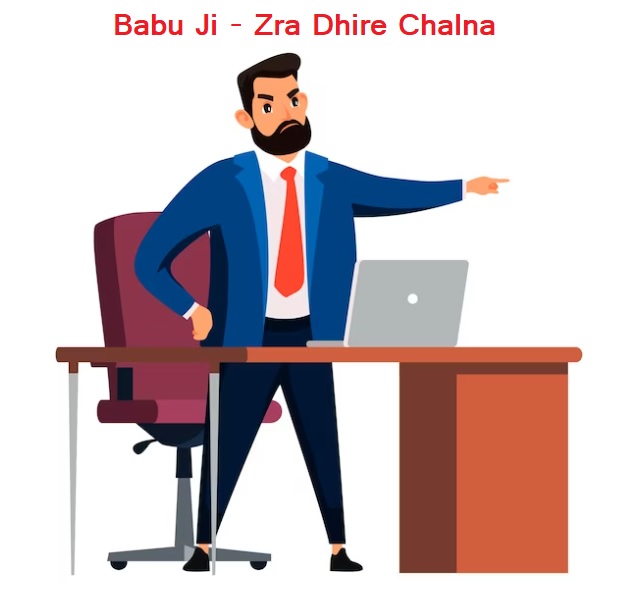
Babu Ji – Zra Dheere Chalna
Babu Ji – Zra Dheere Chalna
It is a common practice to address elders and seniors as babuji. Since it is a Punjabi language word, I searched for the word babu, which means – as per the dictionary of Punjabi-English lying on my study table – gentleman, clerk and father. But now a day, the word babu is used for public servant right from clerks in the government offices but replaced with bureaucrat for the senior officers.
However, the other day, I was scolded by one of the senior family members who rebuked me for addressing him as babuji. Otherwise, babu used with suffixing ‘Ji’ is a respectable word to address some senior officer.
I reasoned out that even the late Jagjivan Ram a great leader, freedom fighter, and crusader for social justice was endearingly called Babuji.
Such lofty titles have definitely some background as to what had gone wrong or what had brought that transformation in these words.
The title babu has also spelled ‘baboo’, used in South Asia as a sign of respect towards men. It is a derivation of bapu which means father or grandfather. The honorific “Ji” is sometimes added as a suffix to create the double honorific “babuji” which, in northern and eastern parts of India, is a term of respect for one’s father. It is also added as a mark of respect but having few or no duties.
“Babuji” can also be used as a term of respect for any respected elder or man. In some Indian states, “babu” is also used as a generic word of respect to address men, especially unknown ones, e.g., “Babu, can you help me?”
In other languages like Bangla “babu” is used as a suffix to a person’s name to show respect while calling him by name e.g., “Surinder Babu, could you please come here?” In Bengal, the word Babu or Babushona is used more broadly, meaning baby or a little kid or one’s child, especially to younger kids. Similarly, in the Saurashtra language, “babu” may refer to a younger brother, male, (sibling). The term “babu” may be suffixed to a person’s name, but the term “babuji” is always used by itself.
In British India, babu often referred to a native Indian clerk. The word was originally used as a term of respect attached to a proper name, the equivalent of “mister”, and “babuji” was used in many parts to mean “sir”.
Since the early 20th-century, the term babu is frequently used for the bureaucrats of the Indian Administrative Service (IAS) and other government officials, especially by the Indian media, while the Indian bureaucracy is called “babudom”, as in the “rule of babus”, especially in India media.
Frankly speaking, the other day, when I dared to ask a very senior officer as to why bureaucrats are called ‘babu’, he said, clerks are small babus and we are big babus. Everything can go normal under or above the table provided we muse over a golden melody from the classic – Aar Paar – Babuji dheere chalna, in our day to day working as with the introduction of Acts like RTS – Right to Service and RTI – Right to Information, both the initiator – Clerk called Babu – and the decision taking authority known as Babuji, are very conscious of the consequences.
Over to Babu and Babuji.




1 Comment
Aseem Aggarwal
Well written.
Comments are closed.